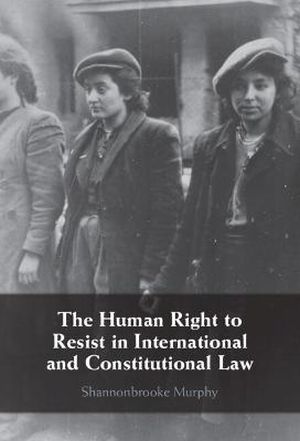
The human right to resist is a contemporary legal concept with an ancient pedigree. Although it has received recognition in constitutions, customary international law and human rights treaties, and acknowledgment by leading publicists of international law, it remains obscure compared to other human rights. In this innovative and comprehensive book, Shannonbrooke Murphy addresses the perennial question of who has a 'right' to resist – and what, when, why, and how, from a legal perspective. Using a systematic and comparative approach to analyzing both the theoretical concept and the provisions in positive law, this study aims to establish that a 'right to resist' can be recognized and codified as an enforceable 'human right', proposing a common conceptual language and an analytical framework for evaluating the legal basis of claims. Murphy makes a strong and detailed case for a firmer place for the 'right to resist' in the human rights lexicon.